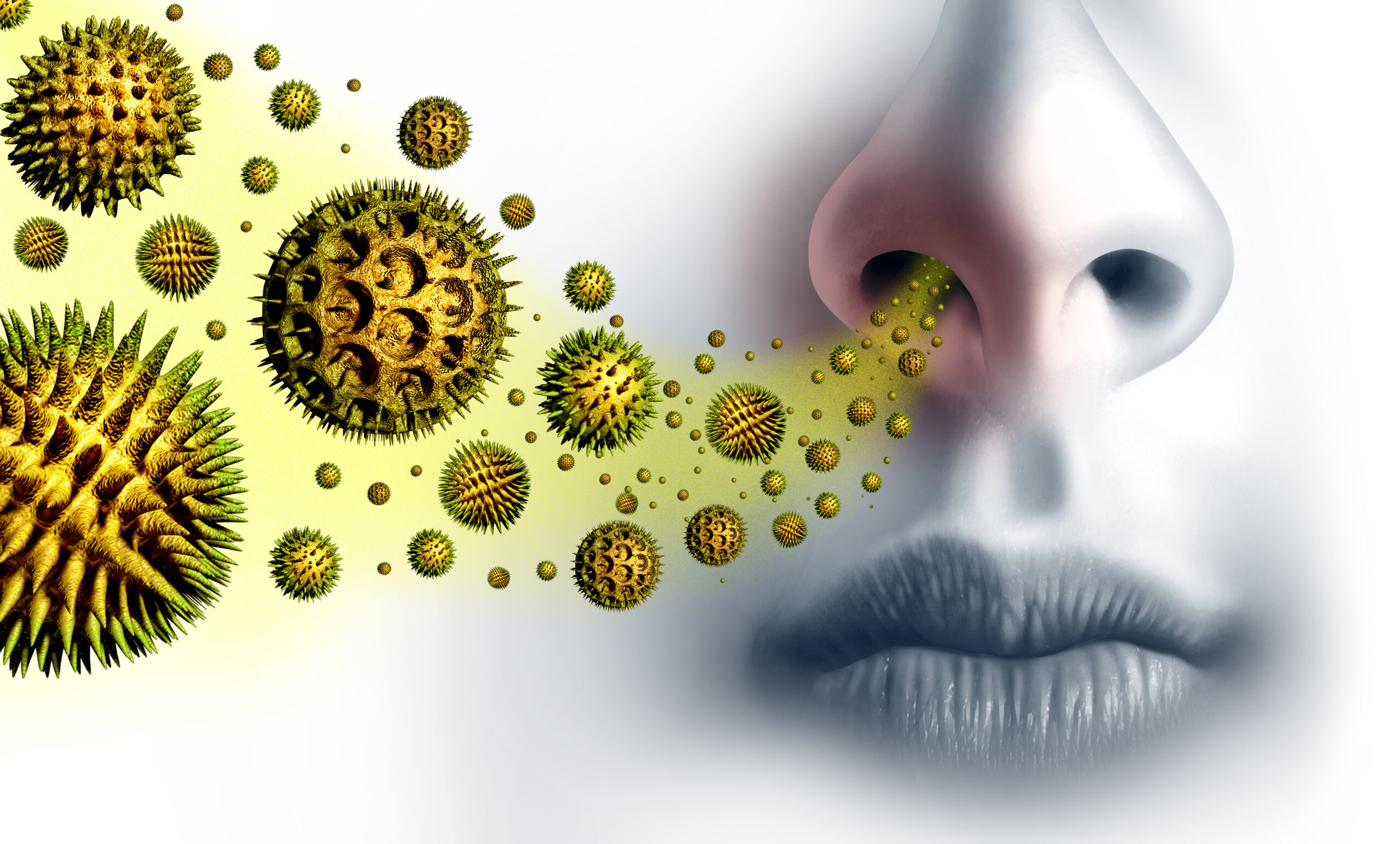Recognized as the sixth leading cause of chronic illness in the United States*, allergies come in many varieties and affect both children and adults.
Foods, medicines, pollens, and more bring about coughing, sneezing, hives, rashes, headaches, itchy eyes, a runny nose, and more to those allergic to them. In some cases, an allergic reaction can be fatal.
Dr. Robert Ziering, who has specialized in treating adult and pediatric allergies and asthma for 40 years, said the most common allergies he treats are due to “animals in the home, dust mites, pollens blowing in the open (bedroom) window, and outdoor molds.”

First and foremost, if an individual is suffering regular symptoms that appear to be allergy-related, it is important to get the battery of tests to determine what the sensitivity is to.
Allergy testing is made simple these days and specialists are very careful to minimize and monitor any reactions to the testing process, for patient comfort.
When the specific allergies are determined, Ziering said “therapies include avoidance.” If the individual can avoid or minimize exposure to their allergic triggers, the healthier they will stay.
Ziering said avoidance can be taking steps like encasing the mattress and pillows on the bed and closing the bedroom window.
If more assistance is needed in managing allergy symptoms, “over the counter medications like Fluticasone nose spray, antihistamines like Zyrtec, Claritin, or Allegra, saline sinus rinse, allergy eye drops, and allergy immunotherapy” can help alleviate symptoms, he said.
Personally, I have found great benefits and improved year-round quality of life in using Fluticasone nose spray. It was recommended to me for daily use about 10 years ago and I have certainly reaped its rewards. It’s one of my daily morning practices that serves as “prevention.” Coupled with nourishing allergy eye drops, I feel I’m setting myself up for a great day.
Since headaches are not uncommon with allergy sufferers, it’s important to look at the common threads between the two.
If you’re like me and experience headache with allergy-related issues, it’s interesting to understand what’s really happening.
“Swelling of the sinus membranes from histamine release in the nasal passages will prevent drainage of normal mucus production and cause headaches,” Ziering said. I considered that an easy to understand, straight-forward explanation.
In his practice, Ziering estimated that “twenty percent of patients complain of headaches with allergy.”
The prevalence of headache really binds us together. It’s valuable to understand the types of headaches, how a headache differs from a migraine, and the underlying conditions that lead to both.
Increased mucus in the sinus can also be caused by non-allergic conditions such as “changes in the weather, strong odors, changes in ambient temperature, or even bending over to pick something up off the floor.”
Notice how some of these non-allergic triggers are parallel to migraine triggers?
If you are experiencing symptoms that you feel might be allergy-related, it never hurts to schedule an appointment with an allergist in an endeavor to reach better health.
By understanding why you are experiencing certain symptoms, you may be given the necessary tools to live a more comfortable life.
Allergists can offer testing, guidance, and key recommendations based on your particular assessment.
Dr. Robert Ziering is in private practice in Vista, CA and is a member of American College of Allergy, Asthma and Immunology and the San Diego Allergy Society.
*Source: Asthma and Allergy Foundation of America
Coming next: Why I say ‘yes’ to probiotics
Please consider sharing this article with family, friends, neighbors, coworkers. Let’s help each other reach optimal health.
